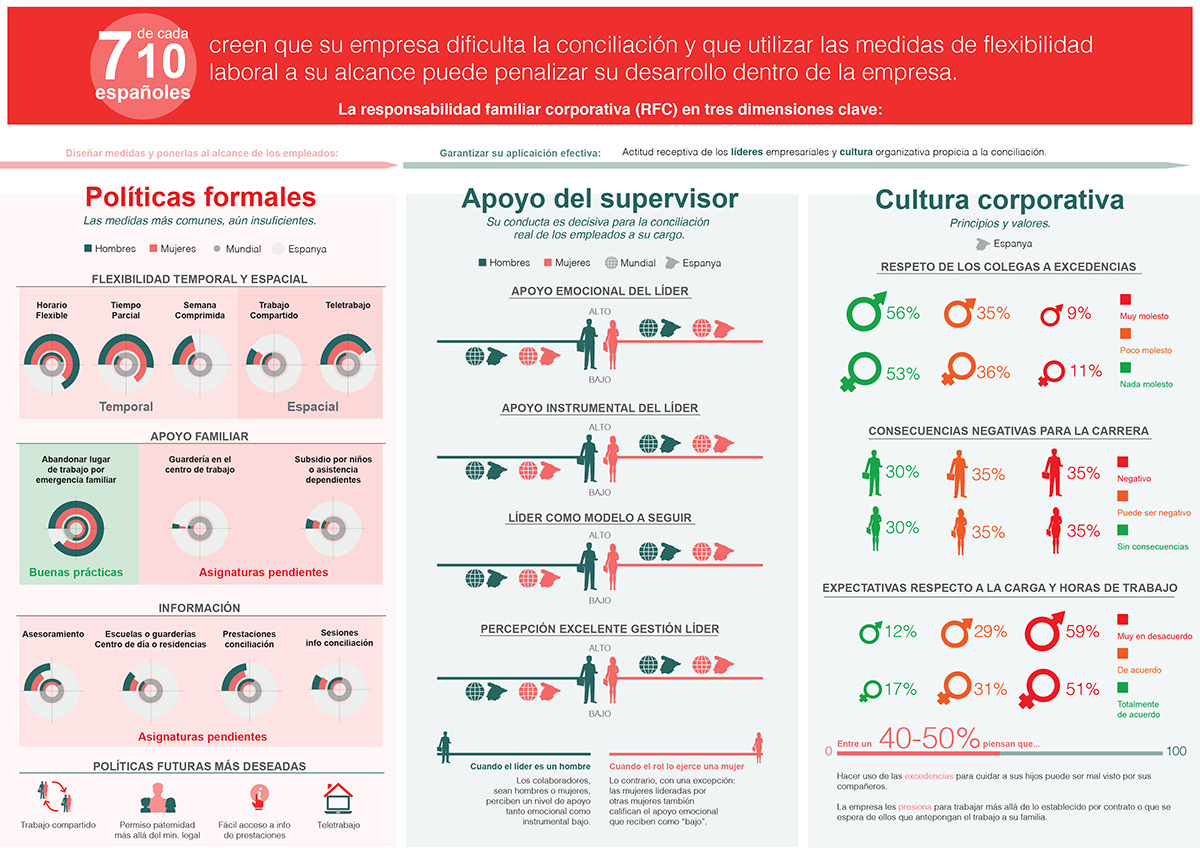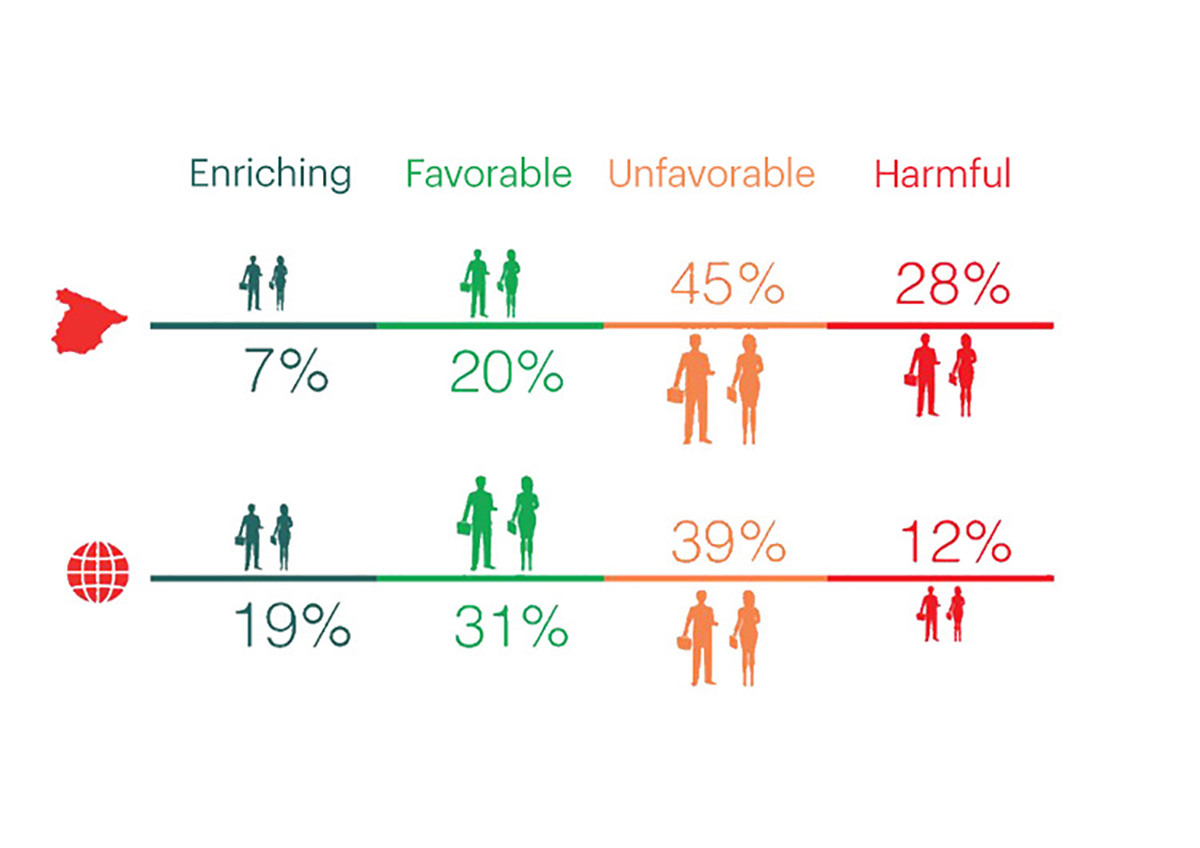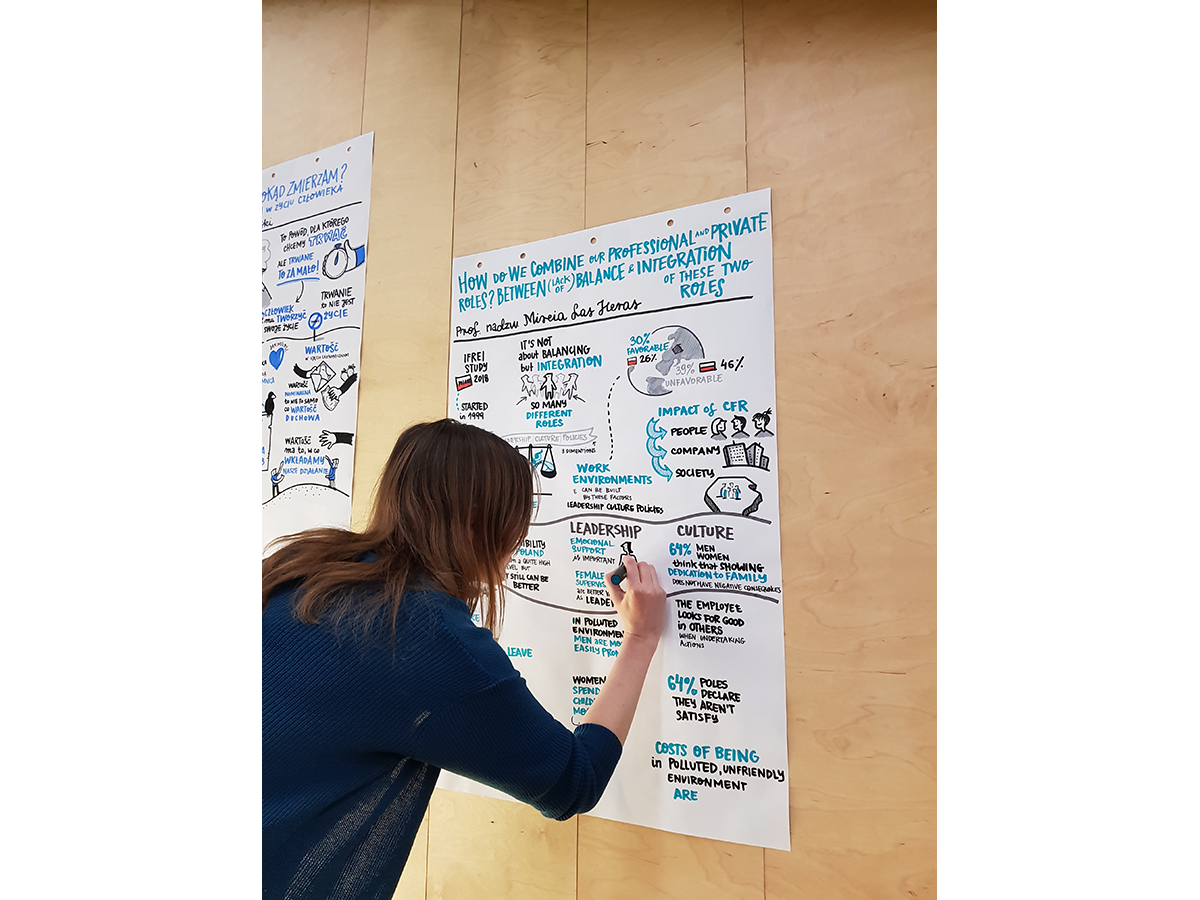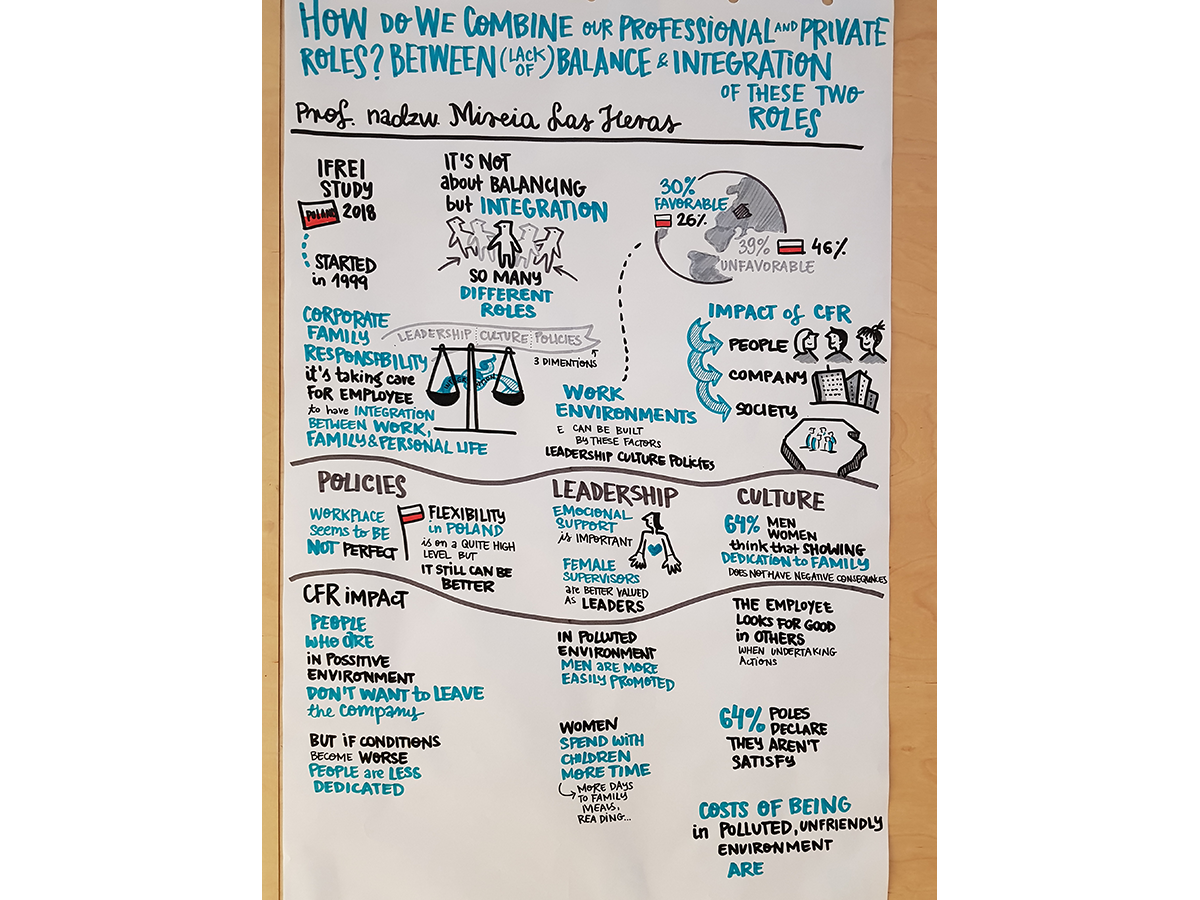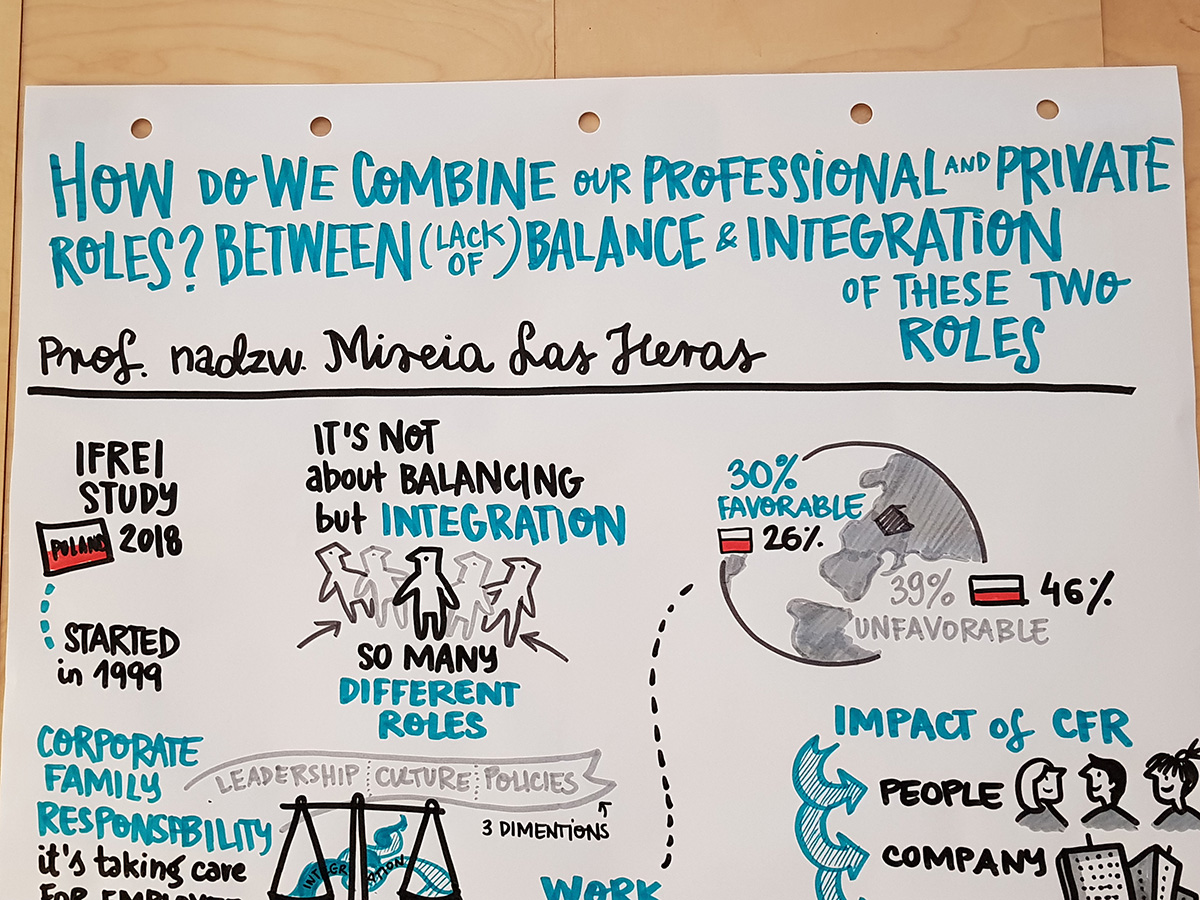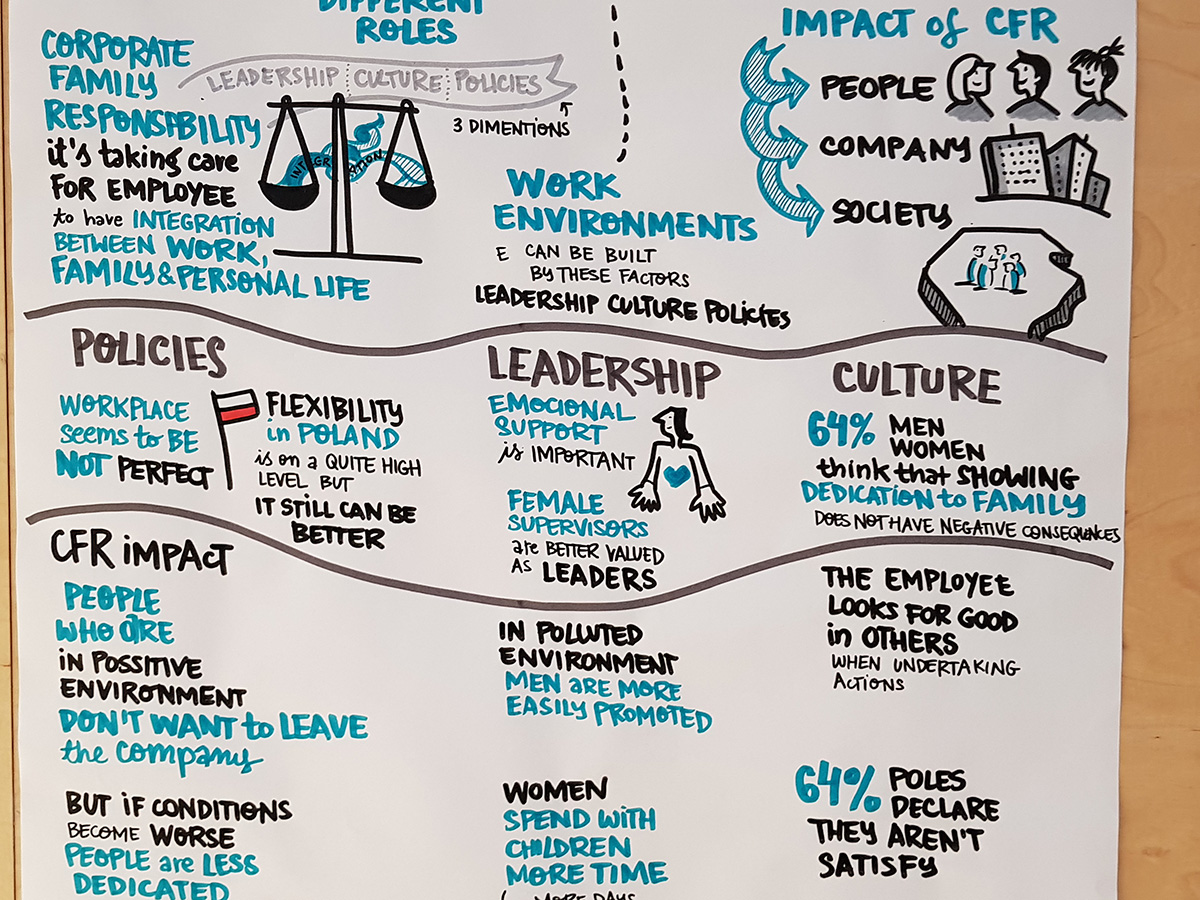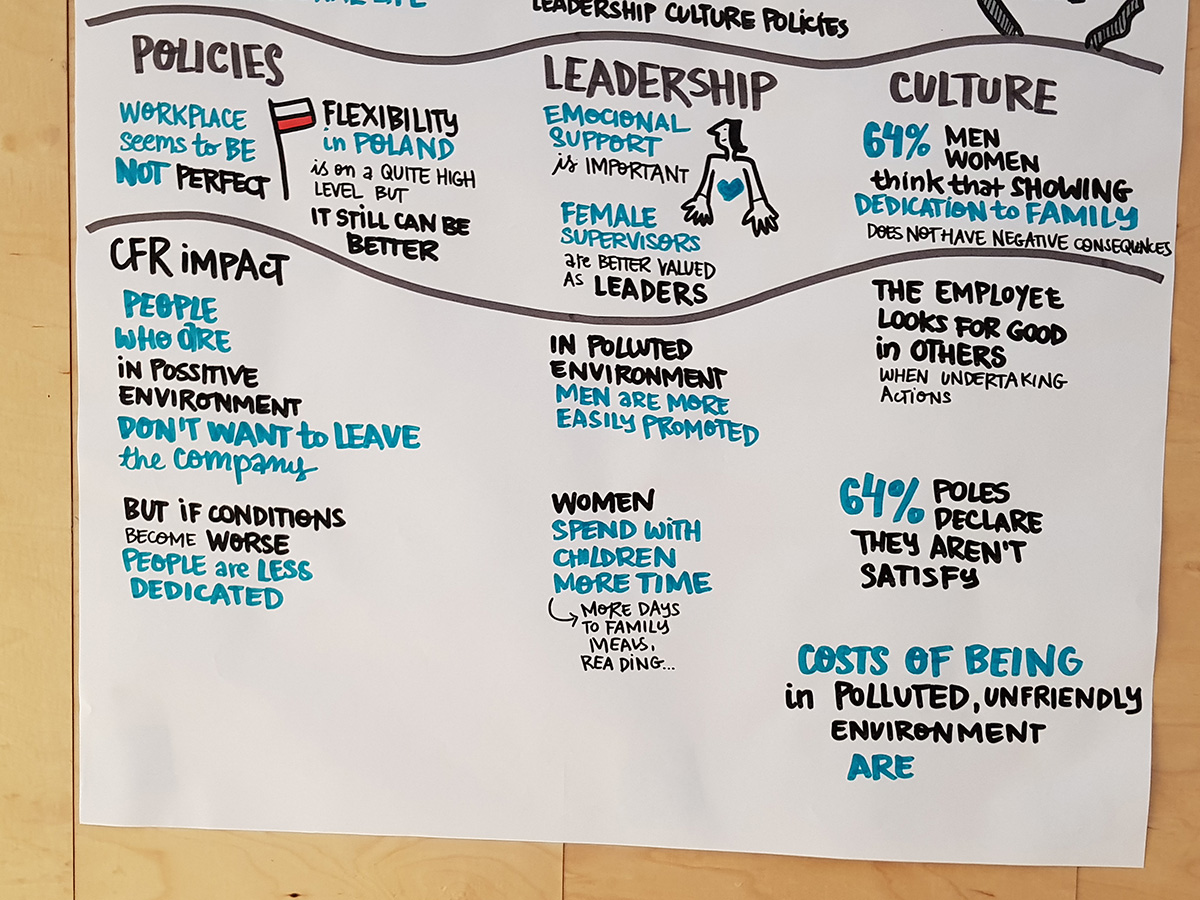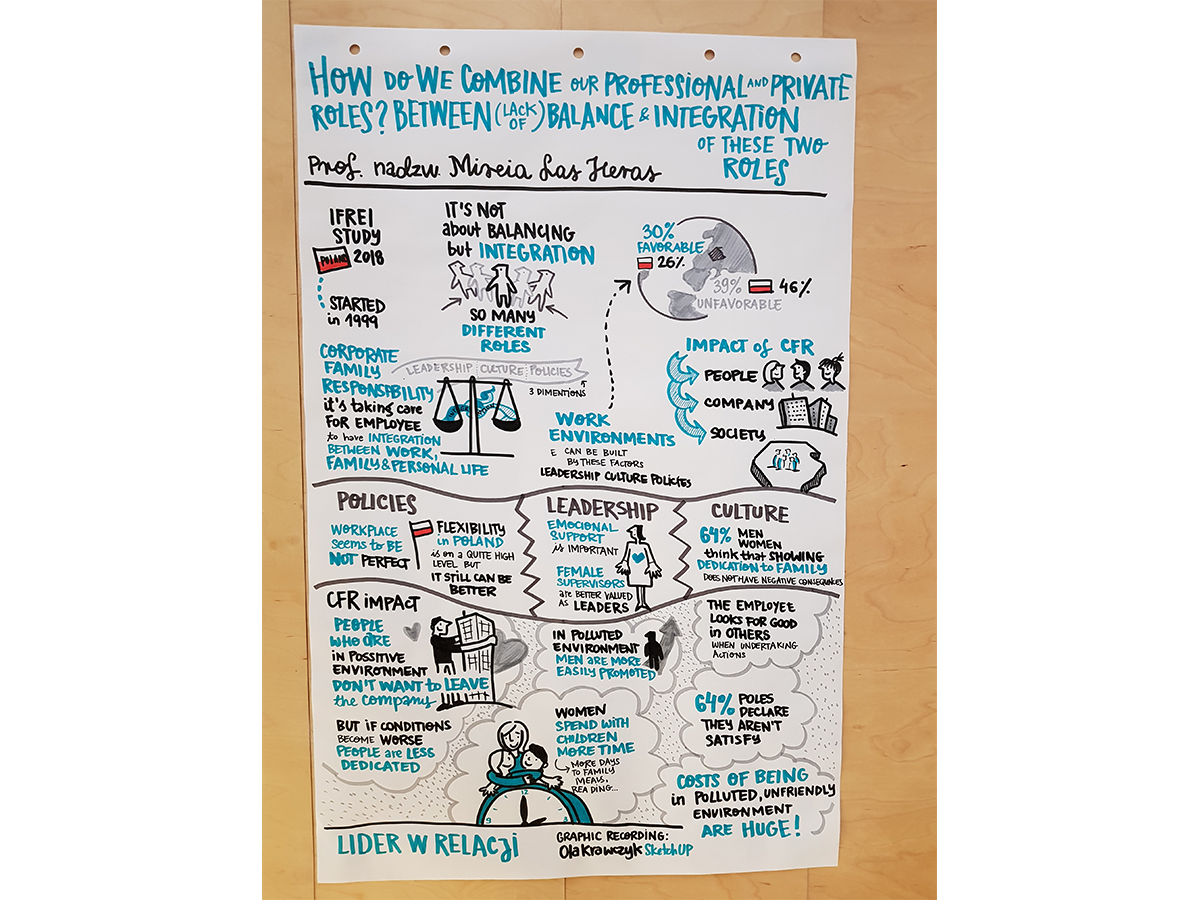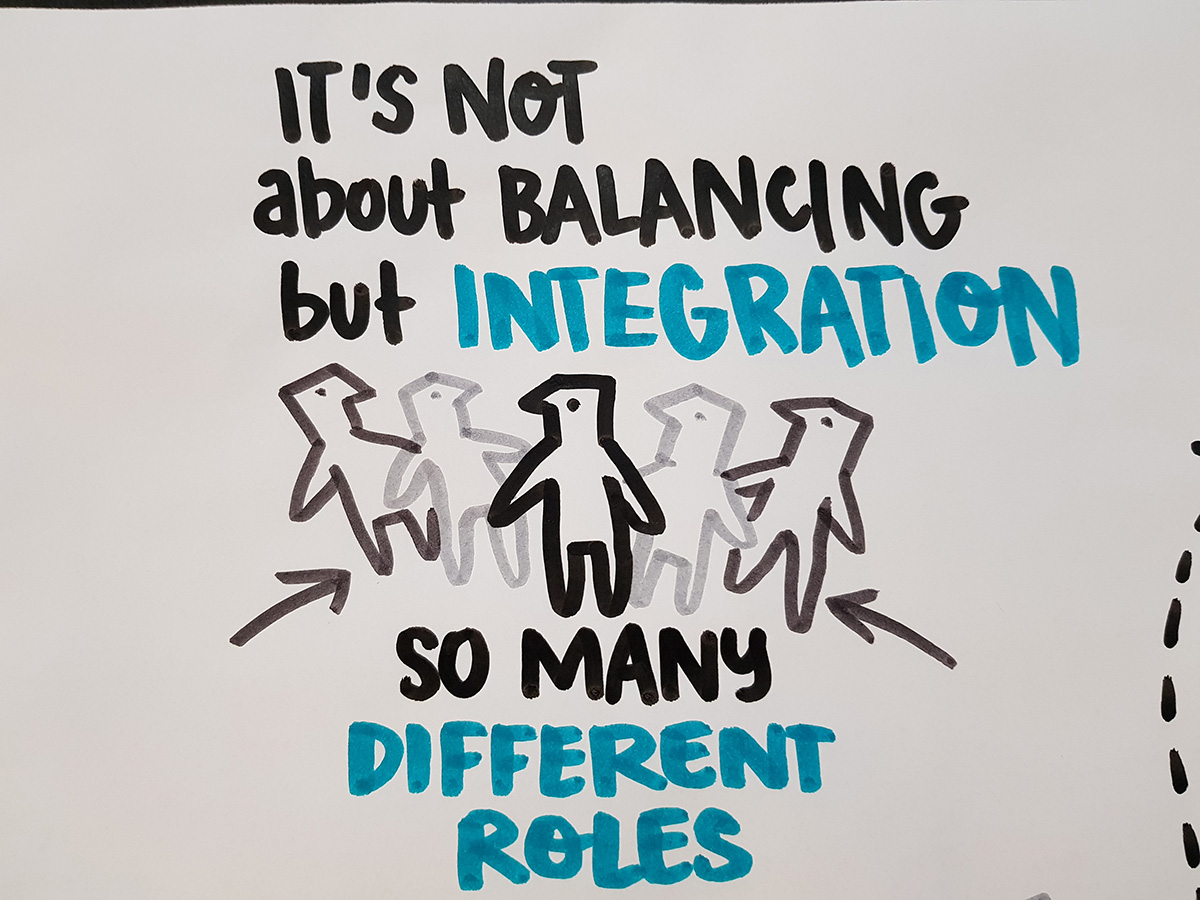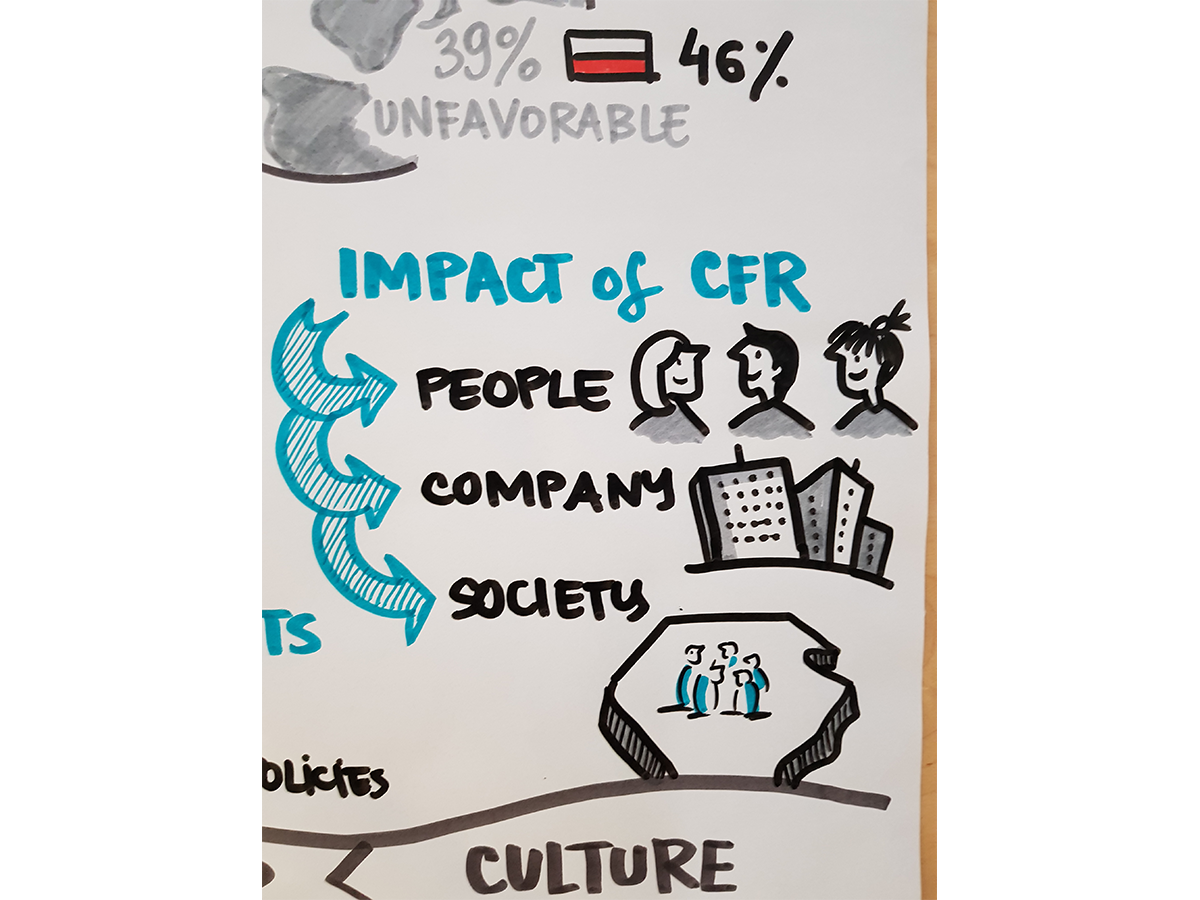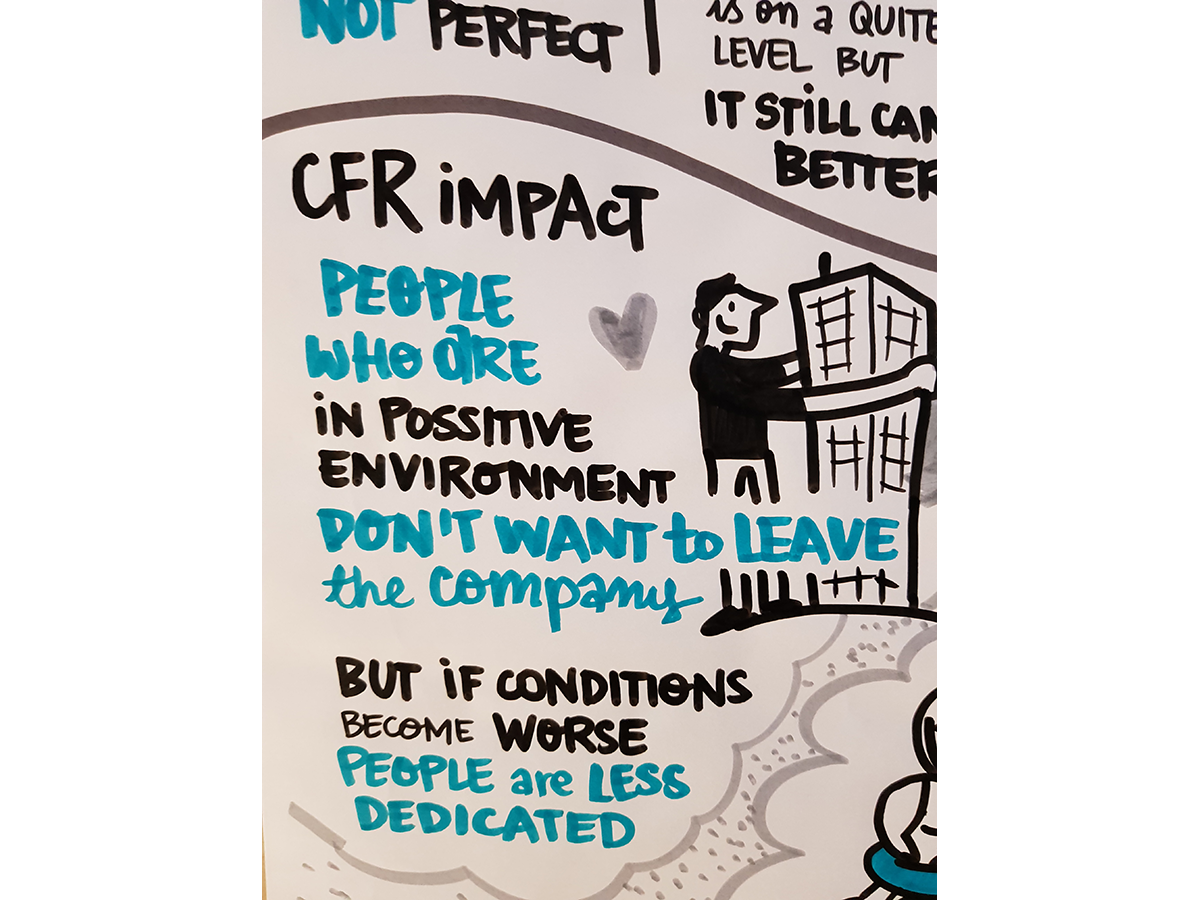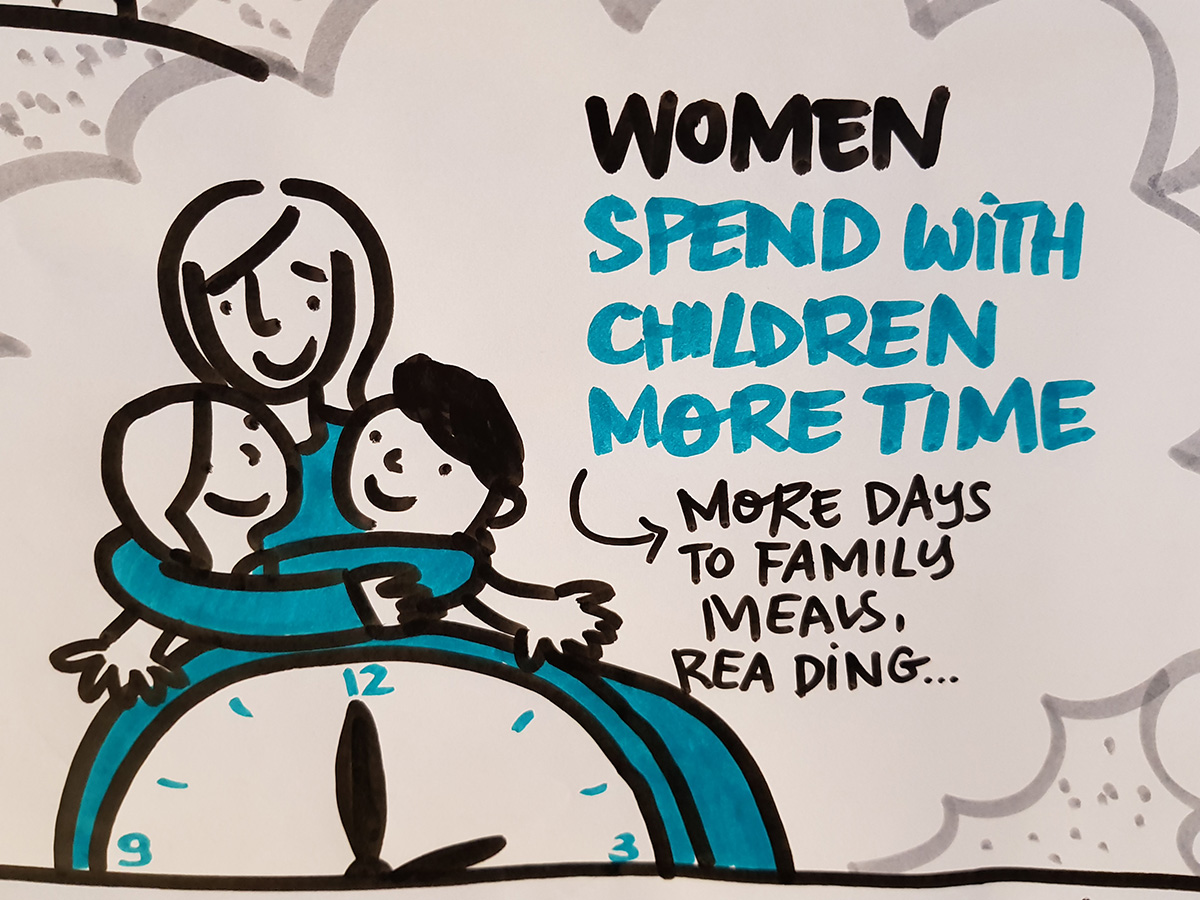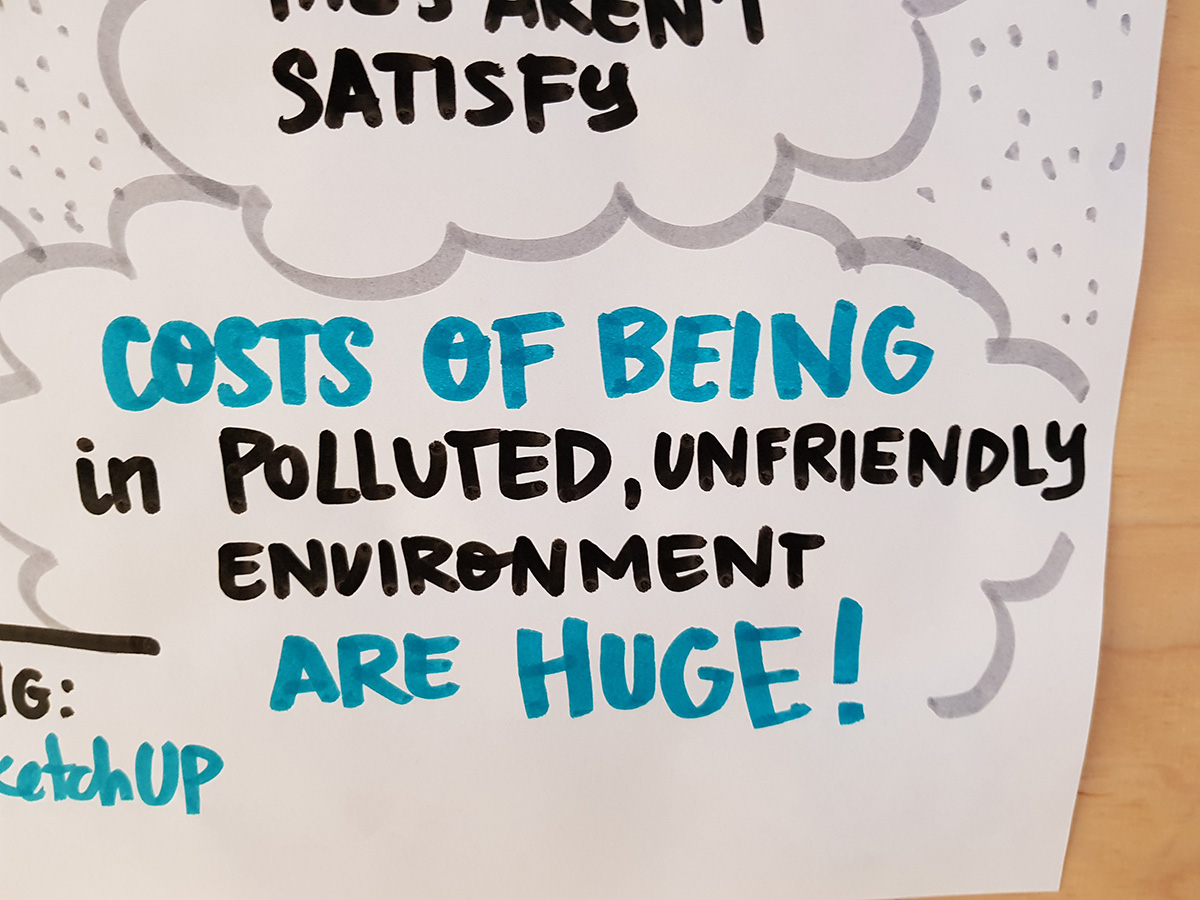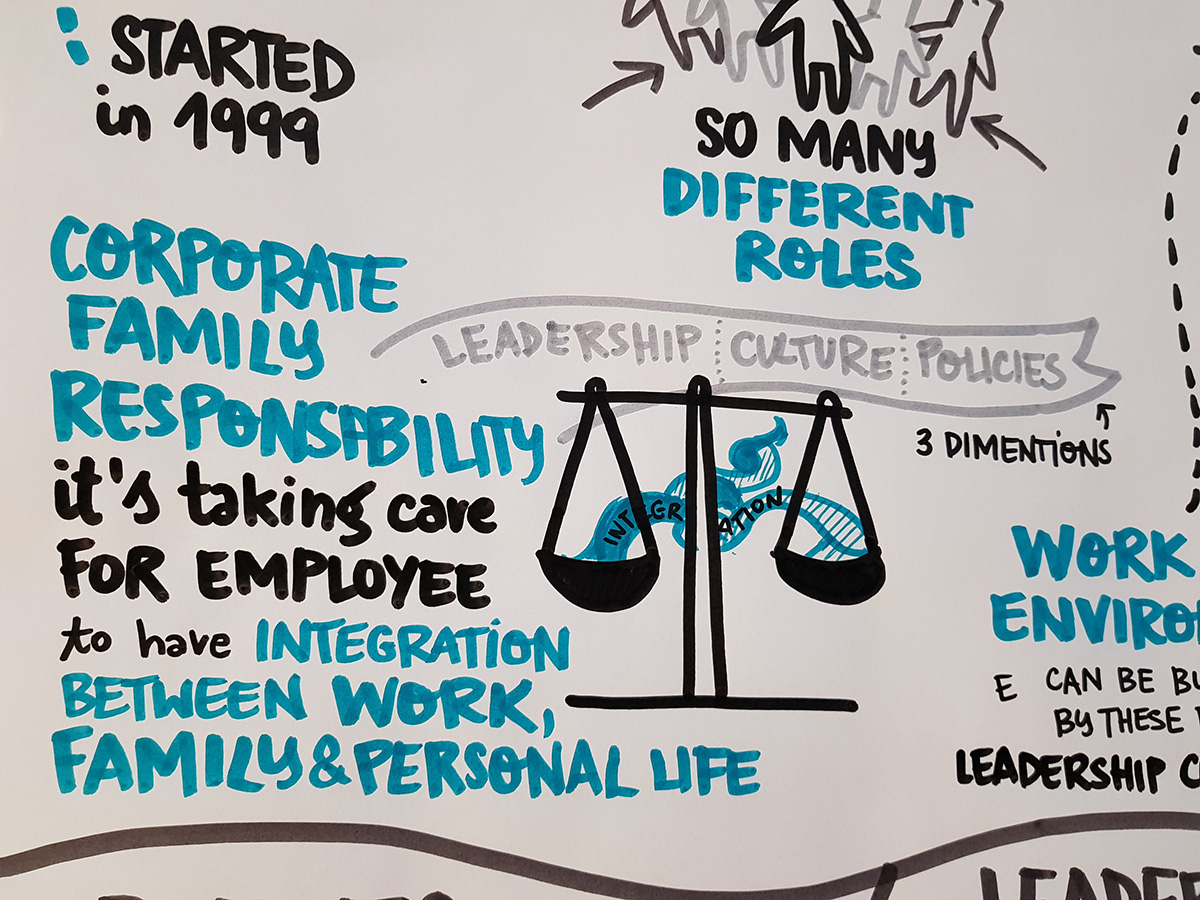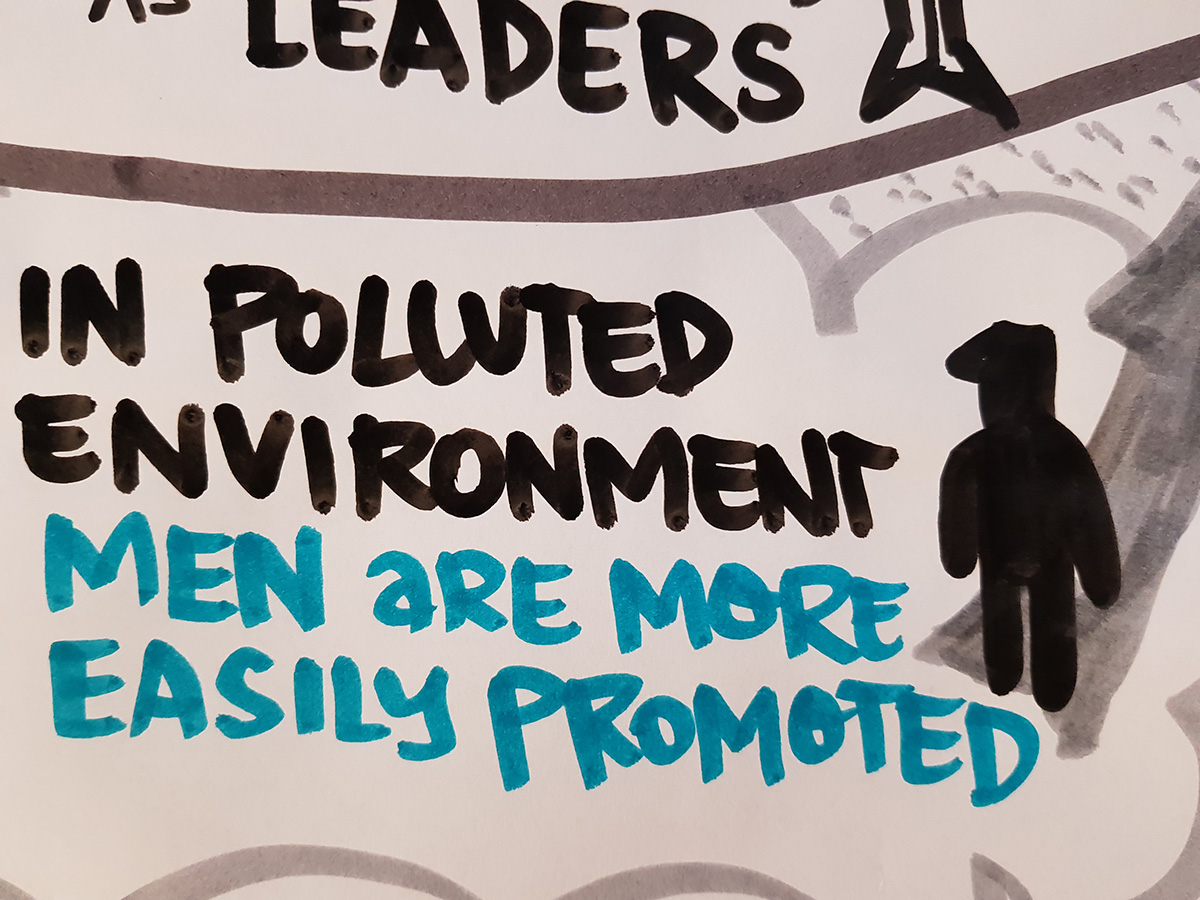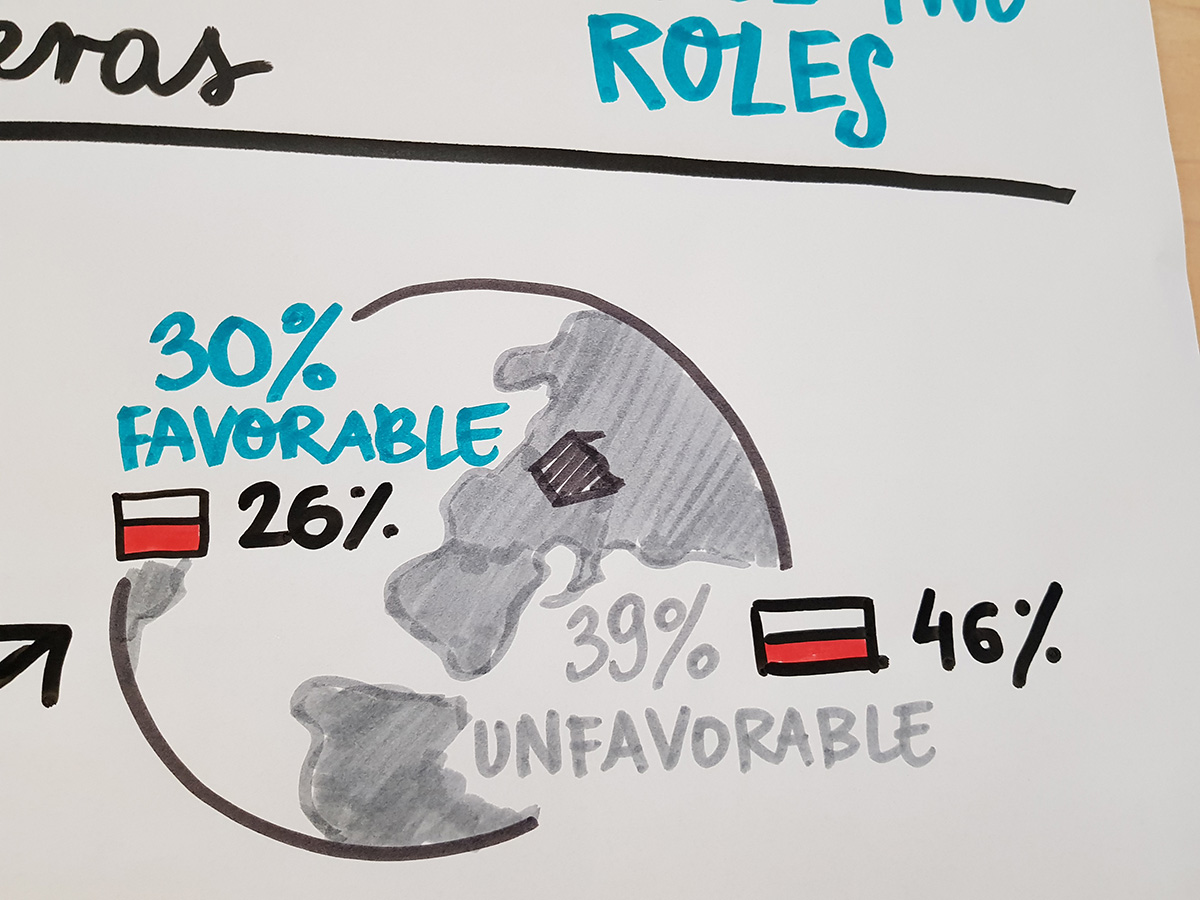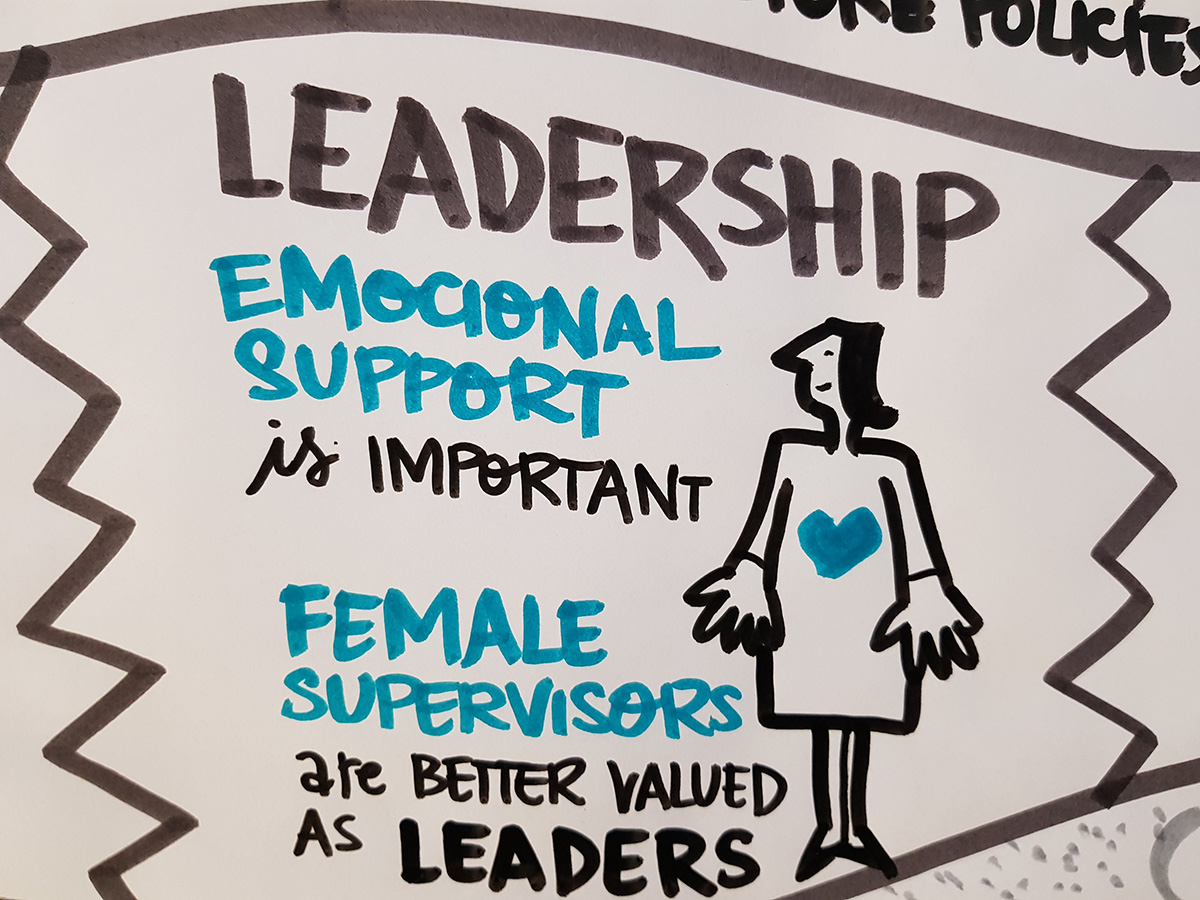Corporate Family Responsibility
Helping a broad audience to know the benefits of work life balance
In 1999 the International Center for Work and Family (ICWF) created the IFREI (IESE Family Responsible Index). The IFREI evaluates the level of Corporate Family Responsibility of organizations, measuring the level of family-friendly Leadership, Policies, and Culture. Since 1999 the ICWF has done numerous reports, all over the world.
IFREI is a survey-based study developed by the International Centre for Work and Family at IESE Business School under the leadership of Prof. Nuria Chinchilla and Prof. Mireia Las Heras. The IFREI Study is being deployed in 23 countries through a network of research partnerships.
The study aims to show the impact of family-responsible leadership, culture and policies within organizations on the employees’ intention to turnover, perceived organizational support, personal health and well-being, and their satisfaction with work-family integration.
A second objective is to identify and recognize family-responsible employers globally.
A family-responsible employer is one that facilitates the work-family integration of their employees through its corporate culture, and policies such as flexible work schedules, access to part-time work and telecommuting.
The Workplace Environment score is calculated from the questions in the survey on:
- Leadership (supervisor support)
- Organizational culture
- Available policies
These are all contributing factors to a healthy work-life balance. See Appendix 1 for the list of individual questions in the survey that relate to each component.
Leadership and Culture each account for 30 points of the total score; the remaining 40 points correspond to Policies. The total score can reach 100 points and falls somewhere into the following range of workplace environments:
A (Enriching)
B (Supportive)
C (Hindering)
D (Toxic)
The total score of an organization is the average score of its employees. Depending on the policies and employee has access to; the leadership behaviors his/her supervisor displays; and the culture of his/her working unit, he develops his/her job in one of the abovementioned environments (A (Enriching) - B (Supportive) - C (Hindering) -D (Toxic) )
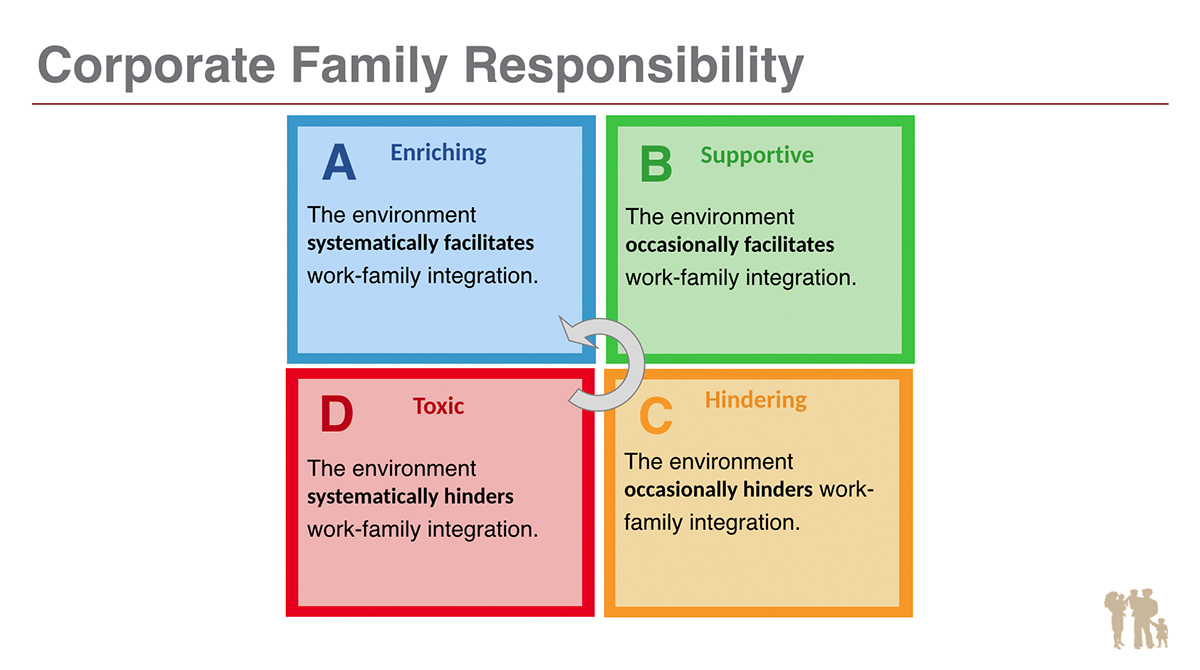
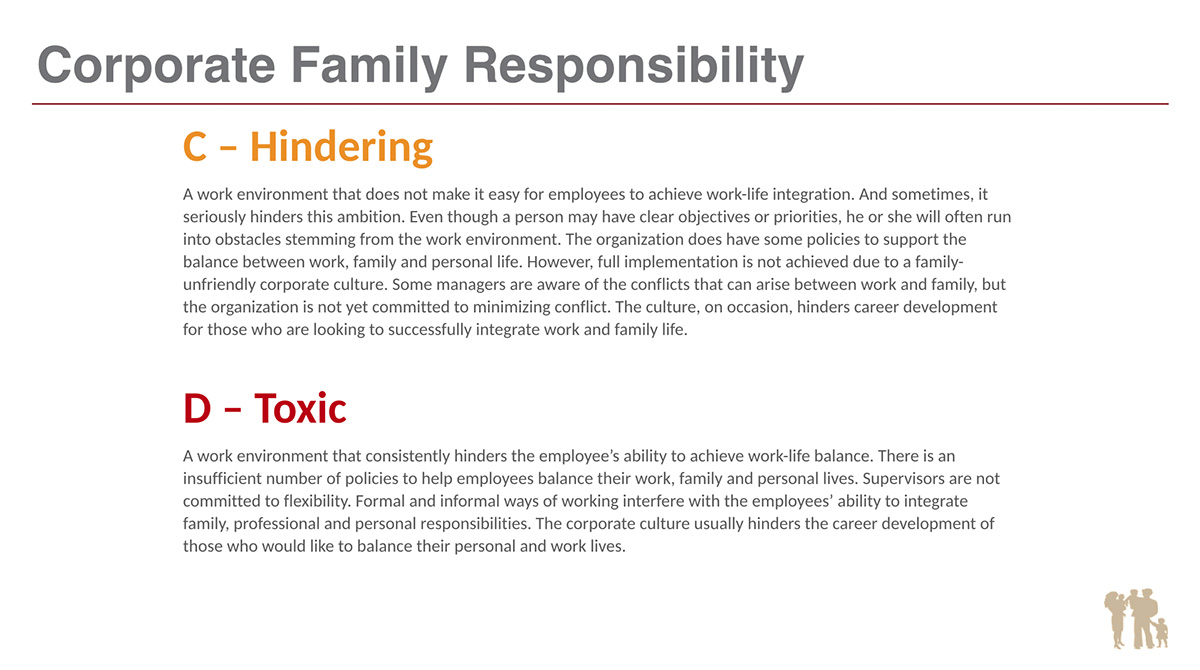
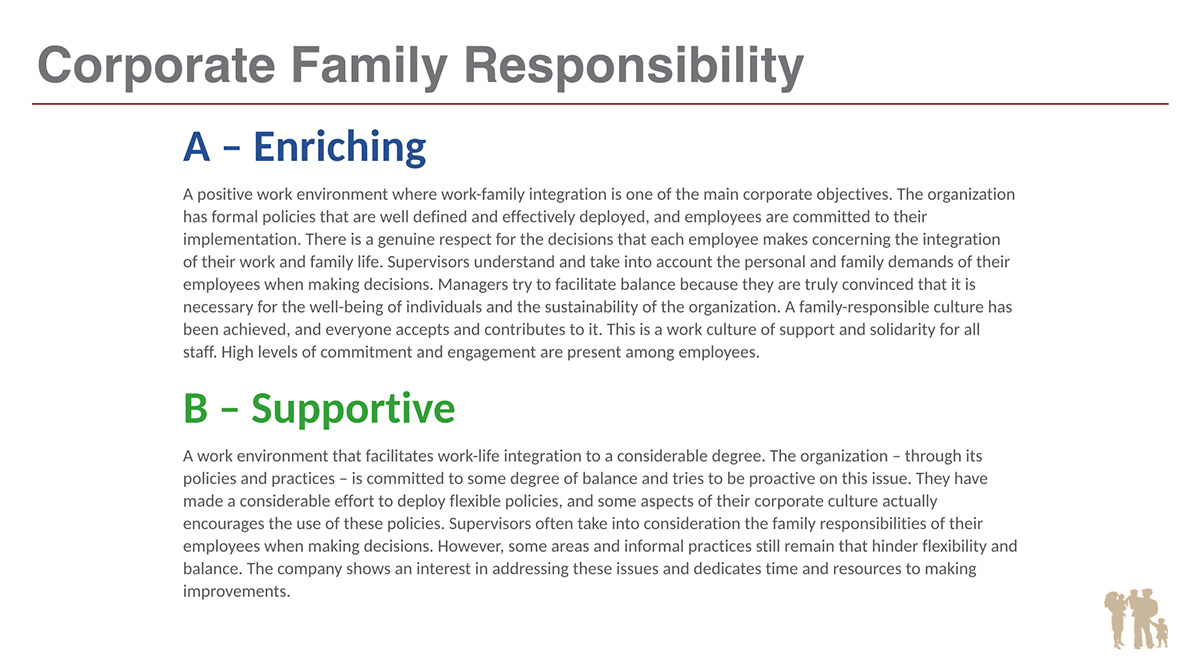
Report: “Sustainability and wellbeing: Corporate Family Responsibility in Madrid Community” (“Sostenibilidad Empresarial y Felicidad Personal- Estudio de la Responsabilidad Familiar Corporativa de la Comunidad de Madrid, 2019”)
Only available in Spanish
This report presents the results, and the analysis, of what employed people in Madrid perceive in their companies, regarding the availability of work-family policies, family-friendly leadership, and family-friendly culture. It shows how those perceptions relate to outcomes such as well-being, health and turnover intentions.
Citation
Las Heras, Mireia; Palet, Gemma; Riera, Gemma, "Sostenibilidad empresarial y felicidad personal: ¿Complementariedad o contraposición?", IESE, ST-504, 02/2019
Reference: 10.15581/018.ST-504 (DOI)
Report: “Corporate Family Responsibility 2017” (“Índice de Responsabilidad Familiar corporativa 2017”)
Only available in Spanish
Citation
Las Heras, Mireia, "Estudio Responsabilidad Familiar Corporativa (IFREI) España 2017: Consecuencias en las empresas, los empleados, y la sociedad", IESE, ST-485, 10/2018
Report: “Corporate Family Responsibility in Spain 2017 (IFREI)” (“Estudio Responsabilidad Familiar Corporativa (IFREI) España 2017”)
According to this study 73% of employees in Spain think that their environments hinders, either occasionally or always, balancing work and family roles. Moreover, they think that using family-friendly policies might hinder their professional development. This means that the culture they are exposed to is not family-friendly; the policies do not facilitate the flexibility needed; and leaders do not display supportive behaviors.
Citation
Yasin Rofcanin, Mireia Las Heras, Maria Jose Bosch, Geoffrey Wood. “Having a Closer Look at the Positive Crossover between Supervisors and Subordinates: The Role of Organizational Culture and FSSB” Human Relations
Report: “Corporate Family Responsibility in the Philippines 2017 (IFREI)” (Responsabilidad Familiar Corporativa (RFC): Filipinas, 2017)
This study shows the level of Corproate Family Responsibility in The Phillipines in 2017
Citation
Chinchilla, Nuria; Las Heras, Mireia; Jimenez, Esther, "Responsabilidad Familiar Corporativa (RFC): Filipinas", IESE, 01/2017 Referencia: 10.15581/018.IND-163 (DOI)
Management. How to be a leader in the era of revolution 4.0
To put people at the center and skillfully connect different worlds (wok and Family) - these lofty words seem easy enough to put into practice. But the results of this year’s “Corporate Family Responsibility” report by the Humanites Foundation, Pracuj.pl and the IESE Business School paint a completely different picture. They show that 63% of Polish employees say that they work in environments which make it difficult to integrate family, social, and professional life, with 17% considering their work environments toxic.
John Naisbitt, a futurologist, emphasizes that the most exciting breakthroughs will not happen because of technology, but as a result of the popularization of the idea of putting the value of people first. The 1948 Universal Declaration of Human Rights was put in the Guinness Book of World Records as the world’s most translated document. There are 508 language versions of this document on the UN’s website. However, companies typically don’t look at human rights when they’re writing their diversity, equality and inclusion policies. They tend to refer mostly to labor laws.
Most employees think their workplace makes it harder for them to reconcile their roles. This is confirmed by the report of the Humanites foundation and IESE Business School. The report, on Corporate Family Responsibility, was conducted for the first time in Poland in 2018. The report shows not only the situation in Polish companies, but also Poland against the background of the summary results of research conducted for eight years (since 2010) in 20 other countries of the world.
The authors of the report compare pro-family solutions, management culture and their impact on the quality of human life, taking into account company policy, support of superiors and organizational culture, including actual expectations of employees (or, for example, do not feel informal pressure for overtime work).
Only in Polish
Only in Polish
Poland Executive Summary (only available in Polish) PDF format
Available in Ensglish
PDF format


